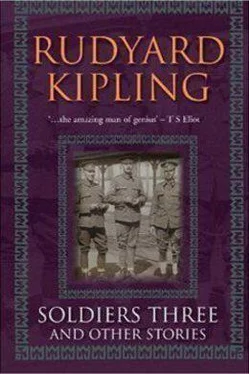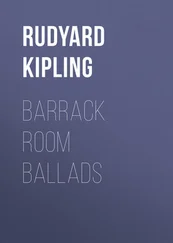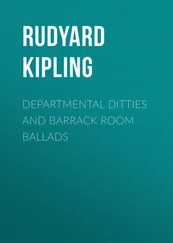Rudyard Kipling - Soldiers Three
Здесь есть возможность читать онлайн «Rudyard Kipling - Soldiers Three» весь текст электронной книги совершенно бесплатно (целиком полную версию без сокращений). В некоторых случаях можно слушать аудио, скачать через торрент в формате fb2 и присутствует краткое содержание. Год выпуска: 2014, Издательство: epubBooks Classics, Жанр: Классическая проза, на английском языке. Описание произведения, (предисловие) а так же отзывы посетителей доступны на портале библиотеки ЛибКат.
- Название:Soldiers Three
- Автор:
- Издательство:epubBooks Classics
- Жанр:
- Год:2014
- ISBN:нет данных
- Рейтинг книги:5 / 5. Голосов: 1
-
Избранное:Добавить в избранное
- Отзывы:
-
Ваша оценка:
- 100
- 1
- 2
- 3
- 4
- 5
Soldiers Three: краткое содержание, описание и аннотация
Предлагаем к чтению аннотацию, описание, краткое содержание или предисловие (зависит от того, что написал сам автор книги «Soldiers Three»). Если вы не нашли необходимую информацию о книге — напишите в комментариях, мы постараемся отыскать её.
Soldiers Three — читать онлайн бесплатно полную книгу (весь текст) целиком
Ниже представлен текст книги, разбитый по страницам. Система сохранения места последней прочитанной страницы, позволяет с удобством читать онлайн бесплатно книгу «Soldiers Three», без необходимости каждый раз заново искать на чём Вы остановились. Поставьте закладку, и сможете в любой момент перейти на страницу, на которой закончили чтение.
Интервал:
Закладка:
'Oh, Trinity of love and power,
Our brethren shield in that dread hour,
From rock and tempest, fire and foe,
Protect them whereso'er they go.
Thus evermore shall rise to Thee
Glad hymns of praise by land and sea.'
'Strikes me they'll go on singing that hymn all night. Imperfect sort of doctrine in the last lines, don't you think? They might have run in an extra verse specifying sudden collapse—like the Visigoth's . I'm going on to the bridge, now. Good–night,' said the Captain.
And I was left alone with the steady thud, thud, of the screw and the gentle creaking of the boats at the davits.
That made me shudder.
The Solid Muldoon
Did ye see John Malone, wid his shinin', brand–new hat?
Did ye see how he walked like a grand aristocrat?
There was flags an' banners wavin' high, an' dhress and shtyle were shown,
But the best av all the company was Misther John Malone.
There had been a royal dog–fight in the ravine at the back of the rifle–butts, between Learoyd's Jock and Ortheris's Blue Rot —both mongrel Rampur hounds, chiefly ribs and teeth. It lasted for twenty happy, howling minutes, and then Blue Rot collapsed and Ortheris paid Learoyd three rupees, and we were all very thirsty. A dog–fight is a most heating entertainment, quite apart from the shouting, because Rampurs fight over a couple of acres of ground. Later, when the sound of belt–badges clicking against the necks of beer–bottles had died away, conversation drifted from dog to man–fights of all kinds. Humans resemble red–deer in some respects. Any talk of fighting seems to wake up a sort of imp in their breasts, and they bell one to the other, exactly like challenging bucks. This is noticeable even in men who consider themselves superior to Privates of the Line: it shows the Refining Influence of Civilisation and the March of Progress.
Tale provoked tale, and each tale more beer. Even dreamy Learoyd's eyes began to brighten, and he unburdened himself of a long history in which a trip to Malham Cove, a girl at Pateley Brigg, a ganger, himself and a pair of clogs were mixed in drawling tangle.
'An' so Ah coot's yead oppen from t' chin to t' hair, an' he was abed for t' matter o' a month,' concluded Learoyd pensively.
Mulvaney came out of a reverie—he was lying down—and flourished his heels in the air. 'You're a man, Learoyd,' said he critically, 'but you've only fought wid men, an' that's an ivry–day expayrience; but I've stud up to a ghost, an' that was not an ivry–day expayrience.'
'No?' said Ortheris, throwing a cork at him. 'You git up an' address the 'ouse—you an' yer expayriences. Is it a bigger one nor usual?'
''Twas the livin' trut'!' answered Mulvaney, stretching out a huge arm and catching Ortheris by the collar. 'Now where are ye, me son? Will ye take the wurrud av the Lorrd out av my mouth another time?' He shook him to emphasise the question.
'No, somethin' else, though,' said Ortheris, making a dash at Mulvaney's pipe, capturing it and holding it at arm's length; 'I'll chuck it acrost the ditch if you don't let me go!'
'You maraudin' hathen! 'Tis the only cutty I iver loved. Handle her tinder, or I'll chuck you acrost the nullah. If that poipe was bruk—Ah! Give her back to me, Sorr!'
Ortheris had passed the treasure to my hand. It was an absolutely perfect clay, as shiny as the black ball at Pool. I took it reverently, but I was firm.
'Will you tell us about the ghost–fight if I do?' I said.
'Is ut the shtory that's troublin' you? Av course I will. I mint to all along. I was only gettin' at ut my own way, as Popp Doggle said whin they found him thrying to ram a cartridge down the muzzle. Orth'ris, fall away!'
He released the little Londoner, took back his pipe, filled it, and his eyes twinkled. He has the most eloquent eyes of any one that I know.
'Did I iver tell you,' he began, 'that I was wanst the divil av a man?'
'You did,' said Learoyd with a childish gravity that made Ortheris yell with laughter, for Mulvaney was always impressing upon us his great merits in the old days.
'Did I iver tell you,' Mulvaney continued calmly, 'that I was wanst more av a divil than I am now?'
'Mer—ria! You don't mean it?' said Ortheris.
'Whin I was Corp'ril—I was rejuced aftherwards—but, as I say, whin I was Corp'ril, I was a divil of a man.'
He was silent for nearly a minute, while his mind rummaged among old memories and his eye glowed. He bit upon the pipe–stem and charged into his tale.
'Eyah! They was great times. I'm ould now; me hide's wore off in patches; sinthrygo has disconceited me, an' I'm a married man tu. But I've had my day—I've had my day, an' nothin' can take away the taste av that! Oh my time past, whin I put me fut through ivry livin' wan av the Tin Commandmints between Revelly and Lights Out, blew the froth off a pewter, wiped me moustache wid the back av me hand, an' slept on ut all as quiet as a little child! But ut's over—ut's over, an' 'twill niver come back to me; not though I prayed for a week av Sundays. Was there any wan in the Ould Rig'mint to touch Corp'ril Terence Mulvaney whin that same was turned out for sedukshin? I niver met him. Ivry woman that was not a witch was worth the runnin' afther in those days, an' ivry man was my dearest frind or—I had stripped to him an' we knew which was the betther av the tu.
'Whin I was Corp'ril I wud not ha' changed wid the Colonel—no, nor yet the Commandher–in–Chief. I wud be a Sargint. There was nothin' I wud not be! Mother av Hivin, look at me! Fwhat am I now?
'We was quartered in a big cantonmint—'tis no manner av use namin' names, for ut might give the barricks disrepitation—an' I was the Imperor av the Earth to my own mind, an' wan or tu women thought the same. Small blame to thim. Afther we had lain there a year, Bragin, the Colour Sargint av E Comp'ny, wint an' took a wife that was lady's maid to some big lady in the Station. She's dead now is Annie Bragin—died in child–bed at Kirpa Tal, or ut may ha' been Almorah—seven—nine years gone, an' Bragin he married agin. But she was a pretty woman whin Bragin inthrojuced her to cantonmint society. She had eyes like the brown av a buttherfly's wing whin the sun catches ut, an' a waist no thicker than my arm, an' a little sof' button av a mouth I would ha' gone through all Asia bristlin' wid bay'nits to get the kiss av. An' her hair was as long as the tail av the Colonel's charger—forgive me mentionin' that blunderin' baste in the same mouthful with Annie Bragin—but'twas all shpun gold, an' time was when a lock av ut was more than di'monds to me. There was niver pretty woman yet, an' I've had thruck wid a few, cud open the door to Annie Bragin.
''Twas in the Cath'lic Chapel I saw her first, me oi rolling round as usual to see fwhat was to be seen.
"You're too good for Bragin, my love," thinks I to mesilf, "but that's a mistake I can put straight, or my name is not Terence Mulvaney."
'Now take my wurrd for ut, you Orth'ris there an' Learoyd, an' kape out av the Married Quarters—as I did not. No good iver comes av ut, an' there's always the chance av your bein' found wid your face in the dirt, a long picket in the back av your head, an' your hands playing the fifes on the tread av another man's doorstep. 'Twas so we found O'Hara, he that Rafferty killed six years gone, when he wint to his death wid his hair oiled, whistlin' Larry O'Rourke betune his teeth. Kape out av the Married Quarters, I say, as I did not. 'Tis onwholesim, 'tis dangerous, an' 'tis ivrything else that's bad, but—O my sowl, 'tis swate while ut lasts!
Читать дальшеИнтервал:
Закладка:
Похожие книги на «Soldiers Three»
Представляем Вашему вниманию похожие книги на «Soldiers Three» списком для выбора. Мы отобрали схожую по названию и смыслу литературу в надежде предоставить читателям больше вариантов отыскать новые, интересные, ещё непрочитанные произведения.
Обсуждение, отзывы о книге «Soldiers Three» и просто собственные мнения читателей. Оставьте ваши комментарии, напишите, что Вы думаете о произведении, его смысле или главных героях. Укажите что конкретно понравилось, а что нет, и почему Вы так считаете.












